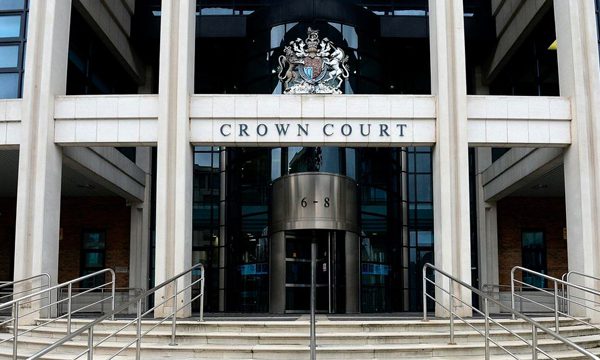Murder & Manslaughter Defence Solicitors in Southampton
“Absolutely happy to contact Leonard Solicitors LLP. Appointments made easily, reaching them fast and everything was dealt with professionally.”

Murder & Manslaughter Criminal Defence Solicitors
If you are under investigation or have been charged with murder or manslaughter, it is essential that you seek professional legal advice and representation as soon as possible. Speaking to the police, informally and under caution can later harm your defence if are not prepared and subsequently charged. Seeking legal advice does not signify your guilt, but does allow you to be informed before entering questioning.
We have a duty solicitor and other police station accredited representatives on hand 7 days a week. Call the office on 023 8023 4433 during office hours or when you are at the police station, ask for Sarah Barnard, our Criminal Defence and Duty Solicitor.
Covering Legal Expenses
Police station interviews and advice is free and is covered under our duty solicitor contract. We also provide legal aid under our contract with the Legal Aid Agency. We will explore legal aid with you if your matter progresses and are later charged with an offence. It’s important to note that not all offences are covered under legal aid and is often granted depending on your financial circumstances. Our team in the Crime Department will advise you on whether you are entitled to legal aid during your initial consultation.
General Information around Murder & Manslaughter Charges
The two most serious criminal offences are murder and manslaughter, both of which have the potential sentence of life imprisonment if convicted. Therefore, getting legal representation from our murder & manslaughter solicitors in these types of charges is essential.
Homicide involves the death of a human; Murder and Manslaughter are in this category however, the two crimes are different and have different sentencing consequences.
The simple difference between murder and manslaughter are as follows:
- 1Did the accused intend to kill the victim? If yes, its murder, if no manslaughter
- 2Can the accused be held accountable for their actions? If yes, its murder, if no manslaughter
- 3Did the offender intend to seriously harm the victim (GBH)? If yes, its murder, if no its manslaughter
What is murder?
When a person (or group of people) unlawfully kills another, with the intent to kill that person or cause grievous bodily harm (GBH).
Even if that person did not intend to end the life of another but wanted to cause serious physical damage (GBH), then later the victim dies of their injury, that is murder. This is because the intention to cause serious harm was there and the actions of the defendant led to the victim’s death.
What is Manslaughter?
When a person is charged with manslaughter, will fall under either involuntary or voluntary manslaughter.
There are two types of involuntary manslaughter:
- Unlawful act manslaughter – where the defendant committed an unlawful or dangerous act that led to the death of another
- Gross negligence manslaughter – where the defendant neglected to or omitted doing something that would prevent the death of another
And voluntary manslaughter is where:
- The person killed the victim
- BUT there is evidence that they were not sound of mind at the time
Typically, the two main ways for someone to be considered not to have been sound of mind at the time of the offence is:
- Loss of control – where the defendant acted out of fear of serious violence to themselves and lost control of their actions as a result, leading to an unlawful killing, perhaps self-defence which went too far, or provocation
- Diminished responsibility – where the defendant’s actions can be explained by an abnormal functioning of mental capacity recognised as a medical condition that significantly impacted their ability to comprehend the nature of their actions, and to make rational judgement and/or practice self-control. Putting it simply with someone who is mentally ill, their comprehension of the boundaries between right and wrong have gone due to their illness
Appeals
If you were convicted at the Magistrates Court, your appeal will generally be made in the Crown Court. The appeal is presented to a Crown Court Judge with two Magistrates and no jury. In certain limited circumstances, an appeal from the Magistrates Court can be made to the High Court. An appeal to the Crown Court must generally be made within 21 days of the sentence. In some circumstances, this time limit can be extended.
If you were convicted at the Crown Court, your appeal is made to the Court of Appeal. An appeal to the Court of Appeal can only be pursued if you can establish that there was an error of law at the original Crown Court trial. An appeal to the Court of Appeal must generally be made within 28 days of conviction or sentence, whichever is being appealed. In some circumstances, this time limit can be extended. Where a Crown Court judge has made a sentencing error, this can be corrected by the Crown Court itself, within 56 days.
FAQ’s
What sentences are there for murder and manslaughter?
The maximum sentence for murder is life imprisonment. There are mandatory minimum terms of imprisonment that must be served before being eligible for consideration for release.
It is 12 years where the offender was under the age of 18 at the time of the offence.
Where the offender is aged 18 years or over at the time of the offence, the mandatory minimum sentence is 15 years on conviction of murder
For manslaughter, there are no mandatory minimum sentences.
There is always the potential for Life imprisonment but sentences rarely reach that mark and are dependent on the type of manslaughter, the sentencing guidelines for that offence, the circumstances of the offence as a whole, the circumstances of the offender (including any mental illnesses). Reports will be written by the Probation service and potentially medical experts such as psychiatrists. There will be consideration of the full range of sentencing options including hospital orders.
I have been arrested for murder/manslaughter, what do I do?
Contact us as soon as you can.
What happens at the Police Station or potentially at other non-Police investigating authorities such as the Service Police, Maritime and Coastguard Agency, Health and Safety Executive is critical in establishing your case and successfully defending you.
There are differences in funding, where the Police are involved advice is free. With the other non-police investigating authorities, public funding is available for Service Police investigations but is means-tested for others.
Our Crime team are available to attend Police Station 24/7.
Related pages
Sexual Offences
Theft & Burglary
Criminal Damage
Fraud & Forgery
At your service
FAQ’s
What sentences are there for murder and manslaughter?
The maximum sentence for murder is life imprisonment. There are mandatory minimum terms of imprisonment that must be served before being eligible for consideration for release.
It is 12 years where the offender was under the age of 18 at the time of the offence.
Where the offender is aged 18 years or over at the time of the offence, the mandatory minimum sentence is 15 years on conviction of murder
For manslaughter, there are no mandatory minimum sentences.
There is always the potential for Life imprisonment but sentences rarely reach that mark and are dependent on the type of manslaughter, the sentencing guidelines for that offence, the circumstances of the offence as a whole, the circumstances of the offender (including any mental illnesses). Reports will be written by the Probation service and potentially medical experts such as psychiatrists. There will be consideration of the full range of sentencing options including hospital orders.
I have been arrested for murder/manslaughter, what do I do?
Contact us as soon as you can.
What happens at the Police Station or potentially at other non-Police investigating authorities such as the Service Police, Maritime and Coastguard Agency, Health and Safety Executive is critical in establishing your case and successfully defending you.
There are differences in funding, where the Police are involved advice is free. With the other non-police investigating authorities, public funding is available for Service Police investigations but is means-tested for others.
Our Crime team are available to attend Police Station 24/7.







